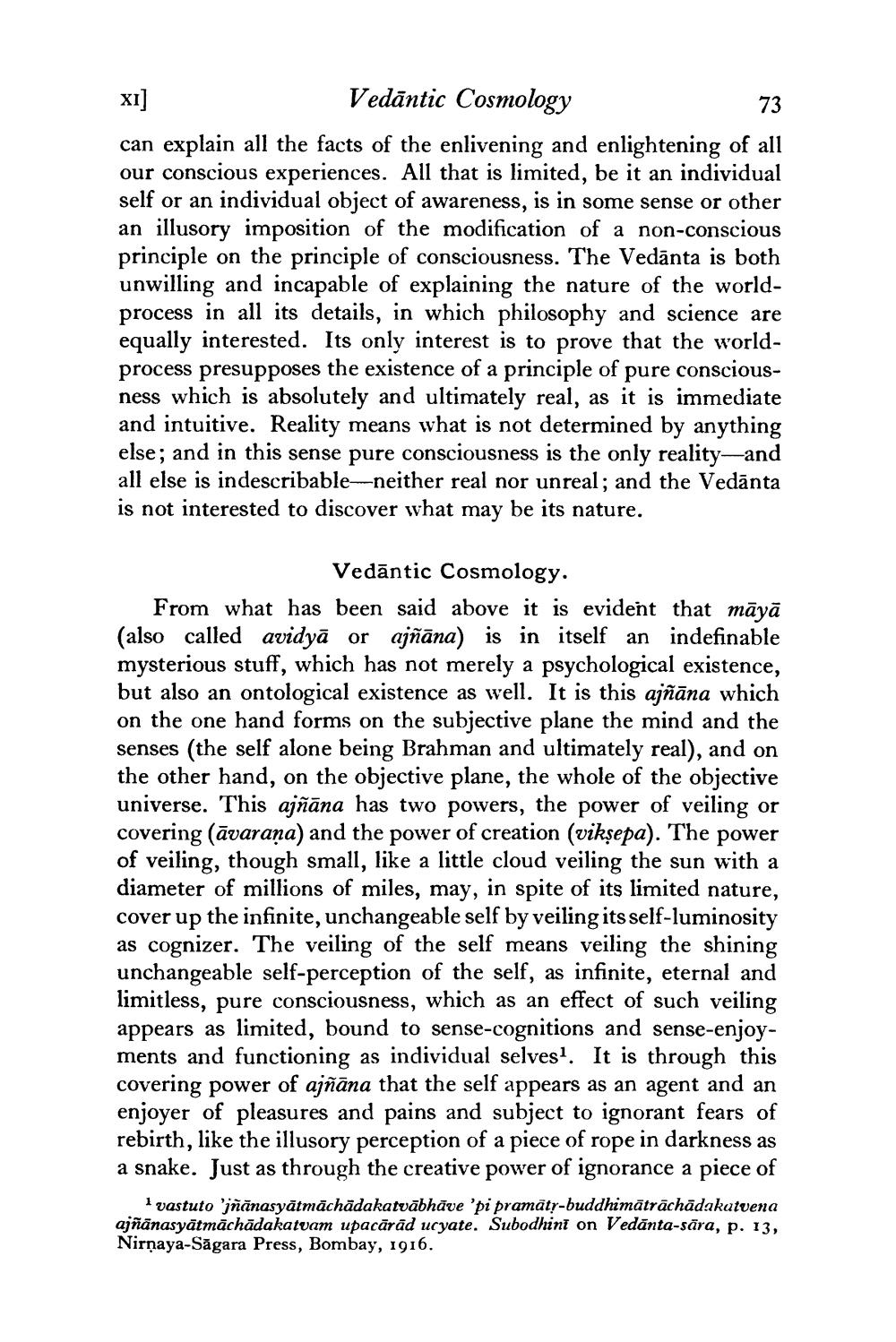________________
XI)
73
Vedāntic Cosmology can explain all the facts of the enlivening and enlightening of all our conscious experiences. All that is limited, be it an individual self or an individual object of awareness, is in some sense or other an illusory imposition of the modification of a non-conscious principle on the principle of consciousness. The Vedānta is both unwilling and incapable of explaining the nature of the worldprocess in all its details, in which philosophy and science are equally interested. Its only interest is to prove that the worldprocess presupposes the existence of a principle of pure consciousness which is absolutely and ultimately real, as it is immediate and intuitive. Reality means what is not determined by anything else; and in this sense pure consciousness is the only reality-and all else is indescribable--neither real nor unreal; and the Vedānta is not interested to discover what may be its nature.
Vedāntic Cosmology. From what has been said above it is evident that māyā (also called avidyā or ajñāna) is in itself an indefinable mysterious stuff, which has not merely a psychological existence, but also an ontological existence as well. It is this ajñāna which on the one hand forms on the subjective plane the mind and the senses (the self alone being Brahman and ultimately real), and on the other hand, on the objective plane, the whole of the objective universe. This ajñāna has two powers, the power of veiling or covering (āvarana) and the power of creation (viksepa). The power of veiling, though small, like a little cloud veiling the sun with a diameter of millions of miles, may, in spite of its limited nature, cover up the infinite, unchangeable self by veiling its self-luminosity as cognizer. The veiling of the self means veiling the shining unchangeable self-perception of the self, as infinite, eternal and limitless, pure consciousness, which as an effect of such veiling appears as limited, bound to sense-cognitions and sense-enjoyments and functioning as individual selves?. It is through this covering power of ajñāna that the self appears as an agent and an enjoyer of pleasures and pains and subject to ignorant fears of rebirth, like the illusory perception of a piece of rope in darkness as a snake. Just as through the creative power of ignorance a piece of
I vastuto jñānasyātmāchädakatvābhāve 'pi pramāty-buddhimātrāchädakatuena ajñānasyātmāchädakatuam upacārād uryate. Subodhini on Vedānta-sära, p. 13, Nirnaya-Sāgara Press, Bombay, 1916.




